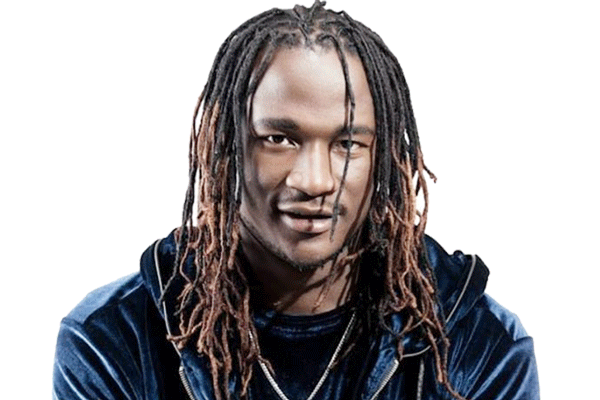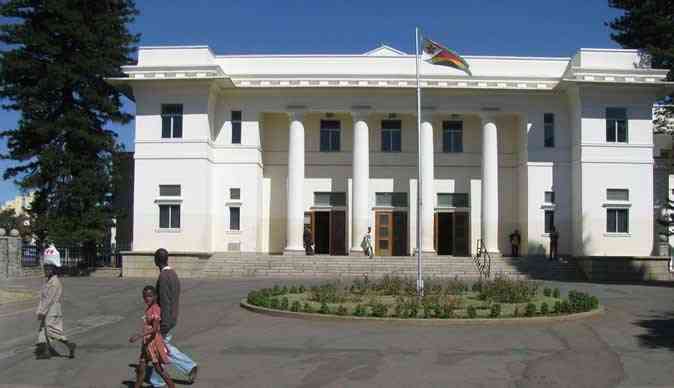
in the groove
with Fred Zindi
I KNEW it!
In light of the UK government’s unlocking of the coronavirus restrictions on July 19, it was time for the Zimfest music promoters to get into action. They rustled up a live Zimfest 2021 scheduled for July 31 in order to hold the biggest party for starved music fans in the UK since 2019.
As Boris Johnson, the British Prime Minister, announced the lifting of Covid-19 restrictions, celebrations began. Corks popped, beats boomed out and giddy revellers rushed onto dancefloors. England’s nightclubs and other big events venues re-opened on Monday July 19. In fact, before that, other areas had already opened up such as Wimbledon for tennis and Wembley Stadium for soccer. Some 60 000 tickets were sold to accommodate football fanatics to attend the match at Wembley in London as the country lifted most remaining coronavirus restrictions after more than a year of lockdowns, mask mandates and other pandemic-related curbs on freedom.
For clubbers and nightclub owners, July 19 lived up to its media-given moniker, “Freedom Day.” But the big step out of lockdown was met with nervousness by many Britons and concern from scientists, who say the UK is entering uncharted waters by opening up when confirmed cases are not falling but soaring.
As of Monday July 19, face masks were no longer legally required in England. Work-from-home guidance ended and, with social distancing rules shelved, no limits existed on the number of people attending theatre performances or big events.
Nightclubs were allowed to open for the first time in almost 18 months, and from London to Liverpool, thousands of people danced the night away at “Freedom Day” parties starting at midnight.
- Chamisa under fire over US$120K donation
- Mavhunga puts DeMbare into Chibuku quarterfinals
- Pension funds bet on Cabora Bassa oilfields
- Councils defy govt fire tender directive
Keep Reading
“I’m absolutely ecstatic,” club-goer John Humphrey said at a night party held in London’s Shepherds Bush. “That’s my life, my soul — I love dancing.”
According to reports reaching me, at The Piano Works in London, patrons packed the area around the cordoned-off dance floor on Sunday as a host led a countdown to midnight.
Once a ceremonial ribbon was cut, the crowd ran towards the dance floor as confetti cannons went off and a disco ball spun above. Soon, unmasked club-goers dancing to a live band’s rendition of Whitney Houston’s I Wanna Dance With Somebody filled the floor.
But while entertainment businesses and ravers are jubilant, many others are deeply worried about scrapping restrictions at a time when Covid-19 cases are on a rapid upswing because of the highly infectious Delta variant first identified in India. Cases topped 50 000 per day last week for the first time since January. Deaths remain far lower than in the last few months, thanks to vaccines, but have risen from less than 10 a day in June to about 40 a day in the past week.
Prime Minister Johnson, who has dialled down talk of freedom in recent weeks, urged the public to “proceed cautiously” and “recognise that this pandemic is far from over.”
Globally, the World Health Organisation says cases and deaths are climbing after a period of decline, spurred by the Delta variant. Like the UK, Israel and the Netherlands both opened up widely after vaccinating most of their people, but had to re-impose some restrictions after new infection surges. The Dutch prime minister admitted that lifting restrictions too early “was a mistake.”
British officials have repeatedly expressed confidence that the UK’s vaccine rollout at 68,5% of adults — or more than half the total population having received two doses — will keep the threat to public health at bay. But 1 200 scientists from around the world backed a letter to British medical journal The Lancet criticising the Conservative government’s decision to lift the lockdown.
One commentator said nightclubs in particular are potent spreading grounds, because they increase close physical contact among a core customer base — people 18 to 25 — that hasn’t yet been fully vaccinated.
“That’s the perfect mixing vessel for the virus to spread and to even generate new variants,” he said.
“I don’t want to have to close nightclubs again, as they have elsewhere, but it does mean nightclubs need to do the socially responsible thing,” Johnson said.
There is no legal requirement for them to do so, however, and most say they won’t.
Either mandate it or don’t mandate it. Soon they may have no choice. Johnson said from the end of September, full vaccination will become a condition of entry to nightclubs and other venues with big crowds. He said by that time, everyone 18 and over will have had the chance to get both doses of a vaccine.
Johnson’s decision to scrap the legal requirement for face masks in indoor public spaces — while recommending people to keep them on — has also sowed confusion.
Some retailers said they would encourage customers to keep their masks on, and London mayor Sadiq Khan said they remain mandatory on the capital’s subways and buses — though police can no longer be called in to enforce the rule.
Khan said more than 90% of passengers appeared to be wearing masks, “and what I think that shows is that people are carrying on their great habits.”
The end of restrictions in England is a critical moment in Britain’s handling of the pandemic, which has killed more than 128,000 people nationwide, the highest death toll in Europe after Russia. Other parts of the UK — Scotland, Wales and Northern Ireland — are taking slightly more cautious steps out of lockdown and keeping mask requirements for now.
Another commentator had this to say: “There’s zero concern.
“The only concern is why we haven’t been here for the last 18 months. It’s been a very long time since we’ve been out to party.”
As soon as the announcement that Britain would have Freedom Day on July 19, was made, the Zimfest promoters rushed to organise things in order to put their much awaited festival together. In Zimbabwe, artistes who have been deprived of live concerts for the last 18 months welcomed this move by the British. The Zimfest organisers contacted musicians from Zimbabwe who included Jah Prayzah, Garry Mapanzure, Poptain, Gemma Griffiths, Trevor Dongo and Tamy Moyo among others to come and grace the occasion. These artistes were rushed to Britain as they needed to spend 10 days in quarantine before the day of the festival. Zimbabwe is regarded as a red list country and as such travel to the UK from here is still restricted even after Freedom Day.
This is what the Zimfest organisers had to bear in mind when arranging this festival held at Colesdale Farm in Enfield.
It is summer in the UK at the moment. The weather is good and conducive for a music festival. I asked one of the organisers if he thought it was worth hiring so many artistes from Zimbabwe and paying their hotel expenses during the 10 days they were held in quarantine. He said: “We did our calculations well. Using past experience, we selected our artistes carefully. We chose what we thought were crowd-pullers. Some critics wanted us to do tribal balancing by bringing in musicians from Bulawayo, but they must understand that this is a commercial venture aimed at making money. Judging by the number of advance tickets sold so far, we believe this is going to be a winner, and it’s worth it.”
Zimfest was established in 2001 by a group of Zimbabweans based in the UK. They had all left Zimbabwe for the UK wide-eyed and enthusiastic, ready to take on the world. They had come from every walk of life in Zimbabwe: Engineers, writers, tree huggers, the lot. Black, white, Shona, Ndebele, and Coloured even a random guy from Malawi called Smudger! All of them had been born touched by the turbulent times at home back in 2000; all of them were not the type to take things sitting down.
The idea came about when Ros ‘Chairman Mao’ Smith from Harare (a nickname that came about due to her never being seen without a thick red book which was essentially the Zimfest Bible) basically said: “I know, let’s have a beer-fest!” Zimbabweans, beer, braai, sun – well hopefully on Mud Island.
“It really was a no-brainer. So they started this thing with 700 of their beautiful countrymen and women on a field behind Wandsworth Prison, South West London, before moving up to their current home on Colesdale Farm for what is now one of London’s friendliest events.
One thing for sure is that Zimbabwean artistes are thankful to the British government for lifting the Covid-19 restrictions which has allowed them to give performances in that country. I am sure I will see more Zimbabwean artistes flying to Britain every now and again.
I am still to get feedback on how the Zimfest festival went. As soon as the musicians land in Zimbabwe, I will be on the phone to call Jah Prayzah to get this information.
Feedback: [email protected]









